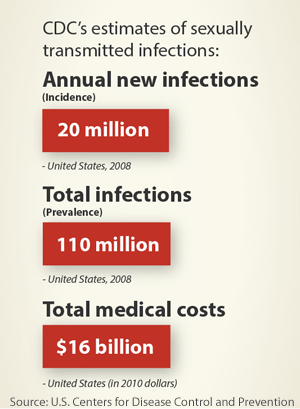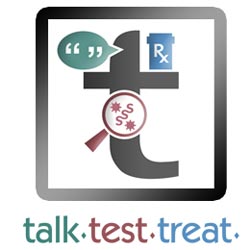Modified: May 17, 2016 4:07pm
Latest News



MEDIA RELEASE
From the Office of the Commissioner of Health, Dr. Gale R. Burstein
Date April 15, 2016
CONTACT: Mary C. St. Mary/Mary.StMary@Erie.Gov
Phone: 716.858.4941/Mobile: 716.253.3925
Erie County Department of Health Highlights Health Impacts of Sexually Transmitted Diseases during STD Awareness Month
STD Testing Available at 608 William Street (Buffalo) Clinic
ERIE COUNTY, NY— April is National Sexually Transmitted Disease (STD) Awareness Month and Erie County Department of Health (“ECDOH”) officials want to draw attention to the high number of STDs diagnosed in Erie County, particularly among young people, ages 15-24 years old.
Too many people want to avoid the topic altogether, but public health data show us that there is a hidden STD epidemic in this nation. In fact, CDC estimates 20 million new STD infections occur each year in the United States, costing the healthcare system nearly $16 billion in direct medical costs. There are also now more than 110 million total sexually transmitted infections in U.S. men and women.
For the first time in nearly a decade, rates for three of the most common STDs (chlamydia, gonorrhea, and syphilis) all increased at the same time in the United States. Erie County has the highest rate of new gonorrhea and chlamydia infections among the 8 Western New York (“WNY”) counties.
These infections can threaten immediate and long-term health and well-being. Untreated STDs can lead to reproductive complications such as infertility (inability to get pregnant) and ectopic pregnancy (pregnancy outside the womb). They can also increase a person's risk for getting and giving HIV.
Although STDs affect individuals of all ages, STDs take a particularly heavy toll on young people. CDC estimates that youth ages 15-24 years old make up just over one quarter of the sexually active population, but account for half of the 20 million new sexually transmitted infections that occur in the United States each year. Gay, bisexual, and other men who have sex with men (MSM) represent an incredibly diverse community. However, these men are disproportionately impacted by syphilis, HIV, and other STDs. Some racial and ethnic minorities are also disproportionately affected by STDs.
“Knowing your STD status is a critical step to stopping STD transmission. If you know you are infected you can take steps to protect yourself and your partners,” said Dr. Gale Burstein, Commissioner, Erie County Department of Health. “Be sure to ask your healthcare provider to test you for STDs — asking is the only way to know whether you are receiving the right tests. And don’t forget to tell your partner to ask a healthcare provider about STD testing as well.” Many STDs can be easily diagnosed and treated.
STDs ARE Preventable!
Here are steps you can take to keep yourself and your partner(s) healthy:
- Practice Abstinence: The surest way to avoid STDs is to not have sex. This means not having vaginal, oral, or anal sex.
- Use Condoms: Using a condom correctly every time you have sex can help you avoid STDs. Condoms lessen the risk of infection for all STDs.
- Have Fewer Partners: Agree to only have sex with one person who agrees to only have sex with you. Make sure you both get tested to know for sure that neither of you has an STD. This is one of the most reliable ways to avoid STDs.
- Get Vaccinated: The most common STD can be prevented by a vaccine. The HPV vaccine is safe, effective, and can help you avoid HPV-related health problems like genital warts and some cancers. Routine HPV vaccination is recommended for boys & girls ages 11 to 12 years. Catch-up vaccination for is recommended young women ages 13 to 26 years and young men ages 13 to 21 years; gay, bisexual, & other MSM up to age 26; Males with compromised immune systems up to age 26 years.
- Talk with your partner: Talk with your sex partner(s) about STDs and staying safe before having sex. It might be uncomfortable to start the conversation, but protecting your health is your responsibility.
- Get tested: Many STDs don’t have symptoms, but they can still cause serious health problems.
The Erie County Department of Health offers confidential STD testing and PrEP (HIV Pre-exposure prophylaxis) to prevent HIV infection at the Jesse Nash Health Center at 608 William Street in Buffalo. For more information, please call (716) 858-7687 or go to http://www2.erie.gov/health/index.php?q=sexually-transmitted-disease-clinics.
# # #
For More Information:
Erie County Department of Health

